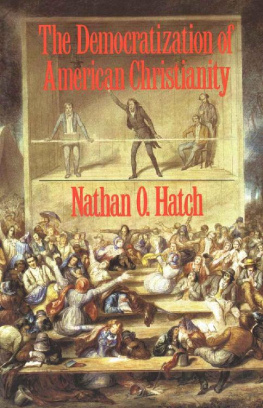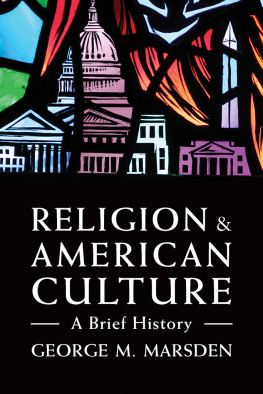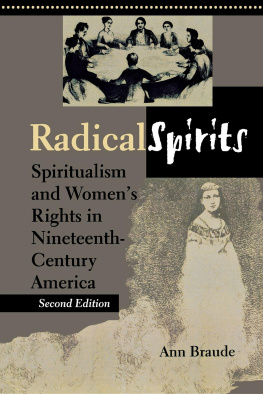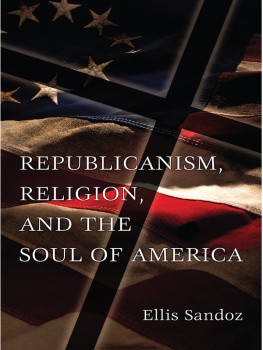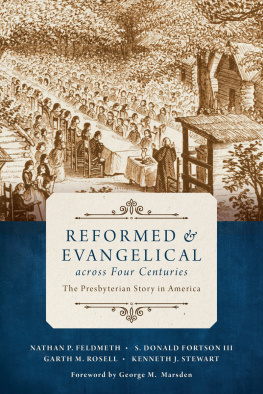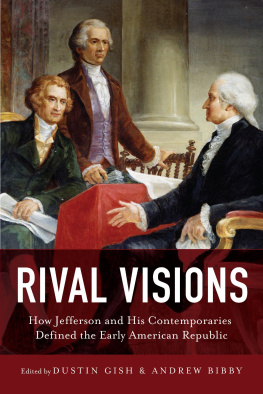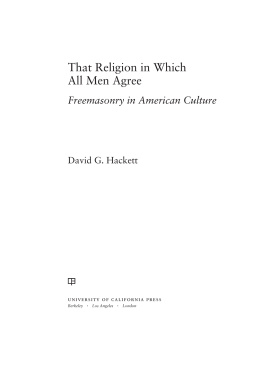The Democratization of American Christianity
The Democratization of American Christianity
NATHAN O. HATCH

The Albert C. Outler Prize in Ecumenical Church History of the American Society of Church History
Copyright 1989 by Yale University.
All rights reserved.
This book may not be reproduced, in whole or in part, including illustrations, in any form (beyond that copying permitted by Sections 107 and 108 of the U.S. Copyright Law and except by reviewers for the public press), without written permission from the publishers.
Designed by James J. Johnson and set in Janson Roman type.
Library of Congress Cataloging-in-Publication Data
Hatch, Nathan O.
The democratization of American Christianity / Nathan O, Hatch.
p. cm.
Bibliography: p.
Includes index.
ISBN 0300044704 (cloth)
0300050607 (pbk.)
1. United StatesChurch history19th century. 2. DemocracyReligious aspectsChristianityHistory of doctrines19th century. I. Title.
BR525.H37 1989
277.3081dc19
895439
CIP
The paper in this book meets the guidelines for permanence and durability of the Committee on Production Guidelines for Book Longevity of the Council on Library Resources.
To
Julie and Gregg,
David and Beth,
with love
Tendencies, which had found no political room to unfold themselves in other lands, wrought here without restraint. Every theological vagabond and peddler may drive here his bungling trade, without passport or license, and sell his false ware at pleasure. What is to come of such confusion is not now to be seen.
PHILIP SCHAFF,
The Principle of Protestantism, 1844
Contents
Illustrations
Acknowledgments
This project had a curious origin a decade ago while I enjoyed fellowships at the Charles Warren Center for Studies in American History at Harvard University and the American Antiquarian Society. I am grateful for the support of these organizations, particularly since my original project, a study of Federalist ideology, quickly gave way to a different one. My focus shifted to the very people whom the Federalists attacked for subverting the republics moral foundations. Unlearned enthusiasts like Elias Smith, James OKelly, and Lorenzo Dow turned out to be fascinating and important characters in a story of social and religious change. Throughout this study, the University of Notre Dame and its Department of History have remained an immensely supportive academic home. I also appreciate the excellent service of the Microtext Department and the Interlibrary Loan Department of the Theodore M. Hesburgh Library.
Many friends and scholars in the historical profession have shown remarkable patience in listening to me drone on about democracy and American Christianity. I am particularly thankful to those who provided comments on drafts of this manuscript: Jon Butler, Jay Dolan, David Hempton, George Marsden, Mark Noll, Richard Pointer, George Rawlyk, Jan Shipps, Richard Shiels, Harry Stout, Grant Wacker, Anne Wotring, Robert Wiebe, and Gordon Wood. Chuck Grench, Executive Editor of Yale University Press, offered valuable encouragement and advice on frequent occasions. Meighan Pritchard added skilled editorial assistance. Mittie Hatch, an astute wordsmith, graciously proofed these pages.
Portions of Society in Early America (Worcester, Mass., 1983), and in Nathan O. Hatch and Mark A. Noll, eds., The Bible in America: Essays in Cultural History (New York, 1982). I am grateful to this journal and to the American Antiquarian Society and Oxford University Press for permission to use this material.
I am indebted to Mike Loux and Roger Skurski, colleagues in administration at the University of Notre Dame. Over a two-year span, they saw much less of me in the deans office than they had a right to expect, my preoccupation with this book compounding their workload. Yet neither ever voiced a word of complaint. In fact, on more than one occasion, Mike Loux whisked me out of the deans office with the impertinent question, How many pages have you written today? I am thankful for the generous commitment of these colleagues to my continued scholarly development.
I am also grateful to three splendid colleagues in the Institute for Scholarship in the Liberal Arts. Under their influence, our offices became graced with many gifts, among them laughter. This crew went the extra mile in effective service, yet they always leavened hard work with humor and good fun. Somehow our fate could not seem grimly serious after Bob Burke, Irish Catholic to the core, arrived from Boston to take a job at Notre Dameonly to find himself surrounded by three Protestants. Bob, we shall long remember your clear exposition of the proper distinction between schismatic, heretic, and infidel.
Each of these co-workers also contributed to the completion of this book: Bob Burke gave up a holidayand saved me from cardiac arrestby fixing a computer disk that flashed unrecoverable error. Behind Valerie Friedlines warm and generous manner lurks a ruthless critic of prose. She took a special interest in my writing and, page after page, straightened many crooked paths. Carol Bryant brought her marvelous skill for organization to a complex array of sources, notes, and drafts. Carol, I await the completion of your quest to trace Lorenzo Dows exact pilgrimage.
Mike Hamilton, a superb graduate student, did become an itinerant of sorts, crisscrossing the landscape of religious sources from the early republic. Time and again, he would return from forays into the evidence bearing a wealth of fresh material and new insight. A more imaginative and enjoyable junior colleague I could not hope to find. In particular, I appreciate his work in tracing the growth of population and of clergy in the early republic (.
Finally, a word of gratitude to my family. Beth, David, and Gregg have cheerfully put up with hasty dinners, trips back to the office, and a father often preoccupied even at home. Their mother has remained a strong source of love, patience, understanding, and wise counsel for us all. Juliebest friend and wisest criticyou are richly deserving of this dedication.
I. Context
CHAPTER ONE
Introduction: Democracy and Christianity
All Christendom has been decomposed, broken in pieces, and resolved into new combinations and affinities.
HARRISON GRAY OTIS, 1836
This book is about the cultural and religious history of the early American republic and the enduring structures of American Christianity. It argues both that the theme of democratization is central to understanding the development of American Christianity, and that the years of the early republic are the most crucial in revealing that process. The wave of popular religious movements that broke upon the United States in the half century after independence did more to Christianize American society than anything before or since. Nothing makes that point more clearly than the growth of Methodist and Baptist movements among white and black Americans. Starting from scratch just prior to the Revolution, Methodism in America grew at a rate that terrified other more established denominations. By 1820 Methodist membership numbered a quarter million; by 1830 it was twice that number. Baptist membership multiplied tenfold in the three decades after the Revolution; the number of churches increased from five hundred to over twenty-five hundred. The black church in America was born amidst the crusading vigor of these movements and quickly assumed its own distinct character and broad appeal. By the middle of the nineteenth century, Methodist and Baptist churches had splintered into a score of separate denominations, white and black. In total these movements eventually constituted two-thirds of the Protestant ministers and church members in the United States.
Next page
